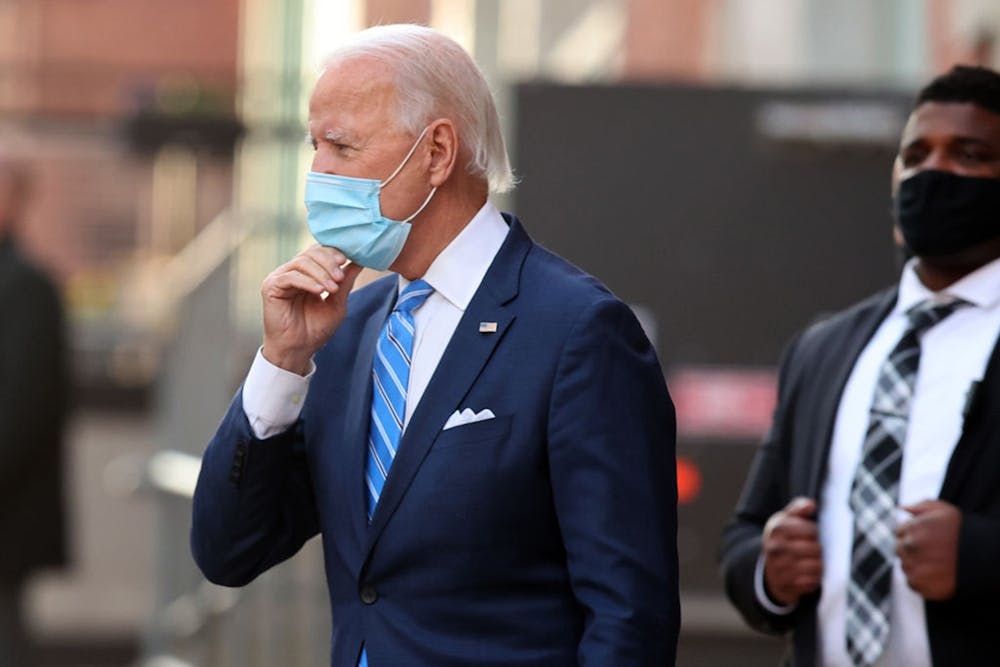IU experts are cautiously optimistic about President-elect Joe Biden’s COVID-19 response plan. The seven point plan is listed on the Biden-Harris website.
The plan includes fixing testing and tracing, ensuring the necessary personnel has personal protective equipment, providing resources for businesses and schools, effective distribution of vaccines, protecting high risk Americans, rebuilding defenses to mitigate pandemic threats and implementing mask mandates.
Peter Federman, assistant professor in the O’Neill School of Public and Environmental Affairs at IU-Purdue University Indianapolis, said the Trump administration had no formalized federal response to COVID-19. The effectiveness of state response has varied due to the different approaches, he said.
“That’s not necessarily a particularly effective way to combat a virus that doesn’t really know borders or politics,” he said.
Federman said the initial signs of the Biden administration’s response are encouraging. A plan to prevent and mitigate pandemic threats has always existed, it simply wasn’t followed by Trump, he said.
“I think it will take a lot, and it’s going to be a heavy lift that politicians and administrators can’t carry by themselves,” he said.
The most important task to tackle COVID-19 is reframing the conversation of the impact of COVID-19 and getting Americans to take serious action, Federman said. The Biden administration needs to improve public trust in government and vaccines, he said.
“Vaccines only work if enough people take them,” he said.
Federman said the results of Biden’s plan are not entirely up to him but rather up to Americans to wear masks and take public health advice seriously.
“When you’re talking about a disease like this, what really matters is how people behave,” he said. “And I don’t know that the Biden administration will have any shot at getting people to behave differently than they do now.”
IU students will be more affected by the state’s decisions in response to COVID-19 than federal regulations, Federman said. He said IU students and Indiana residents should be prepared to be flexible as things change.
Douglas Wasitis, assistant vice president of federal relations, said he is encouraged by Biden’s commitment to let science lead the COVID-19 response.
“I want to believe that the administration will do everything they can to propose a package that meets the needs of Americans, including higher education,” he said.
Wasitis said he is hopeful the needs of higher education institutions like IU will be addressed in the COVID-19 relief package currently pending in Congress or in future relief packages.
Wasitis said currently there are two COVID-19 relief packages proposed, one by the Senate majority leader of about $500 billion and one by a bipartisan group of House and Senate members for about $908 billion.
“A couple of days ago I was optimistic that some sort of compromise between the two would move forward,” he said. “I’m still optimistic, but I’m more cautiously optimistic than I was a couple of days ago.”
Graham McKeen, assistant university director of public and environmental health, agreed there was a lack of coordination and response to COVID-19 early on in the pandemic.
“The fact that you have what is supposed to be the leader of your country not even attending a coronavirus task force meeting for several months is not leadership whatsoever,” he said. “And I think it’s one of the main reasons that we’re in the state that we’re in.”
McKeen said having more testing, free testing, efficient contact tracing and wearing masks are all essential for containing the spread of COVID-19. He said part of the problem in containing the spread is the politicization of the coronavirus.
“This is public health," he said. "It’s not really about personal freedoms necessarily.”
The Biden administration having an actual plan to address COVID-19 is comforting, McKeen said. However, local and state authorities are taking different approaches within their jurisdiction, and consistency with plans based on science would be more effective, he said.
Indiana is underinvested in public health spending, but it spent a lot of money on ensuring Hoosiers have access to free, asymptomatic testing, McKeen said. He said it’s important for people to take personal responsibility, now more than ever, to contain COVID-19.
“We’ll get there, there’s a light ahead,” he said.




